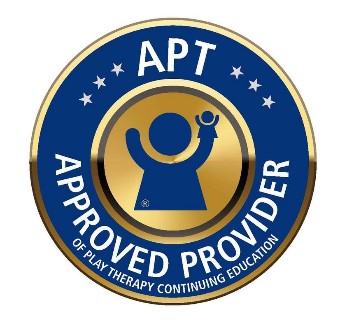Conceptualizing and Treatment Planning in Adlerian Play Therapy-Non-Contact
In this advanced workshop, you will practice using Adlerian conceptualization of clients as a springboard for custom‑designing treatment plans and developing intervention strategies in Adlerian play therapy.
Description
In this class, we will work on deepening your understanding of conceptualization and treatment planning in Adlerian play therapy. Using “example clients,” you will deepen your knowledge of how to assess the client’s developmental level, presenting problem, temperament, preferred modalities of expression, goals of misbehavior, Crucial Cs, life tasks, personality priorities, lifestyle convictions, mistaken beliefs and private logic. We will then work on using your understanding of each of these lifestyle elements to design play therapy interventions to help specific clients gain insight and make behavioral, cognitive, attitude, and affective changes.
 24 Non-Contact CE Hours. (includes 14 hours on Play Therapy Seminal or Historically Significant Theories, 8 hours on Play Therapy Skills and Methods and 2 hours on Play Therapy Cultural and Social Diversity)
24 Non-Contact CE Hours. (includes 14 hours on Play Therapy Seminal or Historically Significant Theories, 8 hours on Play Therapy Skills and Methods and 2 hours on Play Therapy Cultural and Social Diversity)
APT Approved Provider 99-055

League of Extraordinary Adlerian Play Therapists (LEAPT) has been approved by NBCC as an Approved Continuing Education Provider, ACEP No. 7402. Programs that do not qualify for NBCC credit are clearly identified. League of Extraordinary Adlerian Play Therapists (LEAPT) is solely responsible for all aspects of the programs.
Objectives
Learning Objectives for Conceptualizing and Treatment Planning in Adlerian Play Therapy
Participants will be able to:
- Assess the developmental level of play therapy clients.
- Assess the temperament of play therapy clients.
- Compare and contrast the match/mismatch between parental temperament and children's temperament.
- Assess the play therapy client's presenting problem and determine if there are other, underlying problems in force.
- Analyze the various elements of the client's lifestyle and prioritize changes that need to occur.
- Identify the client's needs that might not being met that might be contributing to the presenting problem.
- Identify the client’s preferred tools for self-expression in the play therapy room (e.g., art, puppetry, sand tray, etc.).
- List the interests of play therapy clients.
- Analyze the play therapy client's goals of misbehavior.
- Assess the client's Crucial Cs in play therapy.
- Describe the play therapy client's mastery of the life tasks.
- Assess the play therapy client's personality priorities and those of the other important people in his/her/their life.
- Describe the play therapy client's lifestyle convictions, mistaken beliefs and private logic as a vehicle for treatment planning.
- Describe how they intend to incorporate the client’s preferred tools for self-expression (e.g., drawing, using stickers, doing puppet shows, creating sand trays, etc.) when designing play therapy interventions
- Utilize the client's interests when designing play therapy interventions for a specific client.
- Use their assessment of each of the lifestyle elements to design play therapy interventions to help specific clients gain insight into their self-defeating patterns.
- Custom-design appropriate therapeutic metaphors for clients based on their conceptualization of the client's lifestyle.
- Demonstrate using lifestyle metacommunications designed to help clients gain insight into their patterns of thinking, feeling, and behaving.
- Analyze their assessment of each of the lifestyle elements to help play therapy clients make behavioral, cognitive, attitudinal, and affective changes.
- Demonstrate at least 3 Adlerian play therapy skills designed to help clients make behavioral, cognitive, attitudinal, and affective changes.
- Demonstrate at least 3 Adlerian play therapy techniques designed to help clients make behavioral, cognitive, attitudinal, and affective changes.
- Compile a list of strategies taught in conceptualizing and treatment planning class and describe ways of using them in their work with play therapy in their practices.
- Generalize the strategies for conceptualizing and treatment planning taught and practiced in this class to their work with clients in their practices.
- Explain how play therapy client's culture affects the development of their lifestyle.
Prerequisites
Beginning Adlerian Play Therapy
Student Testimonials
Conceptualization and Treatment Planning in Adlerian Play Therapy is a class I wish I would have taken sooner in my play therapy education. The conceptualization and treatment plan provided is one I consistently use with clients, especially those where the underlying goals of behavior are not immediately clear. The class builds upon the foundational knowledge from Beginning and Advanced Adlerian Play Therapy and ties it together in an easy to understand and applicable way that helps me identify the most effective interventions for my clients. (Hayley Kirchoff)
Agenda
8:30 AM Start
10:15 AM Break 1 (15 mins)
12:00 PM Lunch
1:00 PM Resume Class
3:00 PM Break 2 (15 mins)
6:00 PM End